TIME is the greatest test in racing. On the track and off it. Noel Meade has stood that test on his way to a half-century, not out. Such longevity will ensure the Meath native goes down on a list of legendary Irish trainers.
In a brilliant interview with Racing TV recently, Meade talked to Fran Berry and Kevin O’Ryan about a lifetime in the game. There were entertaining tales of horses, jockeys, owners and journalists from down the years in a piece that spanned just short of an hour and a half. Yet still you felt with Meade, it was only scratching the surface.
Since Tu Va, his first horse in training, there have been thousands through the gates in Castletown and there will be a few more yet because, at 71, Meade has no attention to slow down having achieved one of his greatest feats last summer when sending out Helvic Dream to score in a Group 1 race.
That €12,000 purchase is a likely catalyst for a further acceleration back towards the flat, where the Meath trainer was most prevalent at the beginning of his career. Out of necessity, he transitioned to the National Hunt, where he landed the trainers’ title eight times in all, and he now finds himself transitioning back towards the flat, again “cutting his cloth according to measure.”
Whereas some would have bemoaned the environment changing around them, Meade has evolved with it, reinvented himself, and in turn continued to operate at the highest level at both codes. Make no mistake, he is still a jumps trainer, having sent out another top level winner in Beacon Edge last season, but he is now looking forward to a busy summer with at least two Group 1 aspirants.
No slowing down, just the way Meade would have it.
1 1 1 1 1 1
Ronan Groome (RG): If I was to put it to you that some people referred to you as a flat trainer rather than a jumps trainer now, what would you think?
Noel Meade (NM): (laughs) Well, I haven’t given up training jumpers, in case anyone thinks I have. I haven’t bought many jumpers over the last couple of years because we were just finding it very difficult. We have bought a few point-to-pointers this year and we bought a few stores and I will buy a few more. I’ll probably be 50-50 next season, maybe more flat than jumpers but I still will have jumpers.
RG: That’s interesting because, maybe the generation I’m in, I’ve always associated you as a jumps trainer. It was only when you’ve started looking more towards the flat now that I read you were more of a flat trainer when you started.
NM: It’s gas. It has gone full circle. In the beginning I trained both but there was more emphasis on the flat horses but then it got very difficult to compete and I sort of thought, with the owners I had, I switched them towards jumpers. At the time I was able to buy good jumps horses for the money I was able to spend and it worked very well. We were nearly able to buy the top jumping horses but that is a thing of the past now because they’ve got so expensive. It’s hard to believe that yearlings are cheaper to buy than three-year-old stores now. It doesn’t really make sense. The trade in the store sales is unbelievable at the moment. For that reason I’ve had to cut my cloth according to my measure.
RG: Do you get the same kick out of the flat big winners?
NM: I get as much of a kick out of training a big flat winner as I do a jumps winner. Funny enough, flat horses are a lot easier to train. There isn’t the same amount of injuries and, believe it or not, there’s not the same amount of work with them as there is with jumpers. With jumpers you have to do a lot of schooling and conditioning, and you have to do a certain amount with flat horses as well but on the whole they’re a lot easier to handle.
RG: Tell me about Helvic Dream in the Tattersalls Gold Cup, it’s up there with your best ever achievements?
NM: Ah yeah it was because, look it, I’ve had horses run very well in the Epsom Derby, the Irish Derby, been placed in the Guineas, I’ve been knocking on the door but I’ve never had that Group 1 winner, so that was something special. The way he improved through runs was special because he’d run against Broome four times - ran poor the first time, ran fourth the next time, then second and then beat him in the Group 1. Colin (Keane) was very keen on him on the day and when it rained all night, we thought he could win. I got some kick out of it.

RG: So you’ve got Helvic Dream, but now you’ve got Layfayette as a possible for the Tattersalls Gold Cup as well (needs supplementing) next week. What are you thinking?
NM: It was funny, I was kicking myself for not having Helvic Dream in the Mooresbridge, with the way the ground went, but it turned out okay. He has to have soft ground and where he runs will depend on that. I have him entered in races in Germany, France and England but we need the weather to go our way. It’s a lot of money to supplement Layfayette so we haven’t decided on that yet. We always thought he’d get a mile and a half very well, so we have the Hardwicke in mind for him as well.
RG: Did you foresee Layfayette’s improvement this season. The hold-up tactics have made a big impact?
NM: And I’m not sure that has been by accident or design because when he ran at Naas first time out, he didn’t travel, Oisin (Orr) had no option but to sit in behind and he just picked up really well. It was the same the next day, but he travelled much better then in the Mooresbridge, maybe because of the juice in the ground. There’s no question, he’s been a revelation.
RG: You bought him as a breeze-up horse?
NM: Peter Nolan got him for me actually. Peter buys a lot of horses for me now. He saw him breeze and was very taken with him. His sire wasn’t everyone’s cup of tea, he’s not a very successful sire but, look, he’s been a very lucky horse for us and I’m delighted for Paul and Patricia (Hunt, owners).
RG: Another set of owners who have been with you for a long time?
NM: Yeah, and mostly with jumps horses. They’ve had some good ones like Apache Stronghold, Snow Falcon and Monksland. I probably steered them towards the flat and Layfayette was the first horse we bought. This one is a bit special and they’ve got a great kick out of him. They’ve five more two-year-olds this year.
1 1 1 1 1 1
RG: Towards the end of your Racing TV interview, you mentioned the staff situation as the one thing that just annoyed you, but didn’t really go into it much more. How worried would you be if that situation gets any worse? Not least, off the back of Robert Tyner sadly calling it quits last week.
NM: I am seriously worried about it, not just for other people but for myself as well. The cost of staff and feed and everything has gone up. Trying to get the staff is a huge problem. There’s so few trainers charging enough, I don’t know even if I am myself. But everything has gone up; fuel, electricity and insurance. It is frightening and it is something you just have to be very careful about or you can lose out very quickly.

RG: How do you feel about the general health of racing at the moment? Lots to be positive about but the industry always seems to be looking over its shoulder. The controversies in the last few years haven’t helped.
NM: The obvious thing is the accusations of doping. I think that was wrong. A lot of what went on was terrible, what was said was terrible. The unsubstantiated statements were unbelievable and the innuendo that went with it. I think there is without doubt a group of people that seem to want to knock racing and want to bang it down any chance they get and it’s hard to understand why. Even people in racing. To me it doesn’t make any sense at all.
I think we’ve got a very good product - the best horses in the world - and it’s something that a lot of people in Ireland enjoy and are proud of. This is the story we should be championing. I think most tracks have been looking after people a lot better going racing and have been looking after the owners a lot better than they were before. Running a racecourse is like running a hotel, you’re only as good as your last meal or experience. It’s not easy but racecourse managers have to keep striving to keep standards as high as they can. We do need to keep the race day experience as good as possible, but I must say that I think that it’s a lot nicer to go racing in Ireland than it is in England.
RG: In what way exactly?
NM: I’ve never ever felt uncomfortable at a race meeting in Ireland, in a bar or whatever. I can’t say the same about England. I have to say, at times, I’ve thought, even at their bigger meetings - Ascot and Cheltenham - it was rather rowdy and a bit scary at times in recent years.
1 1 1 1 1 1
RG: I’m sure you’ve thought a lot about being a trainer for 50 years. Is it something you’re really proud about? It’s
an amazing achievement in many ways.
NM: Well I don’t know… Listen, it’s tough, there is nothing easy. You see a lot of big trainers fade away. When we were at the height of the jumping game, I was second to Aidan three or four times in the jumps trainers’ championship and then we won it eight times and I must have been second to Willie a couple of times as well. That period was tough going. You were constantly putting yourself under pressure getting the horses and getting the people to own them and whatever. When you get into that vein, what really is hard about it is when the season is over, you can’t really lay back and have a rest, you have to get going again, get the next one and the next one. I think in one respect it’s a lot easier to be a trainer when you’re not chasing a championship, you know, because you’re a little bit more relaxed, I think. Willie is a tough man to be able to be doing what he’s doing. Now, probably you notice with a lot of trainers we have now, the operation and yards have got a lot bigger, and they’ve huge teams around them.

RG: You sound like you’re content with your standing as a trainer now?
NM: Yeah, I am, actually. When you were chasing championships, you knew that if you didn’t win, the other guy was going to win. You had to keep winning. It was kind of soul-destroying in a way because you were always pushing yourself. Now you sort of feel like you can train the horse and think about where he’s going and the race you want him to go for. You always had to do that, obviously, but it just feels that there is less pressure now. Most people I train for now are all friends of mine. That makes it that bit easier.
RG: I’d suggest that a big part of your success has been your people skills… you love telling a story, a good night out, et cetera… would that be fair to say?
NM: Yeah, that is 100% correct and I’m very lucky to have met the great people I’ve met and to have them as long-standing owners now. But let me tell you, I’ve met some difficult people as well. And I don’t mind saying that I’ve ended up training for some tricky customers over the years. I’d say that everyone who trains horses has, and people that will let you down too. Some of the stories you’d hear about people after, it’s incredible.
RG: 50 years in this game, I’d say that’s natural enough?
NM: Yeah, I suppose. I’d say there’s not a trainer alive that wouldn’t say that to you, no matter who it is, a Michael Stoute or a Dermot Weld, I’d say everyone of them would say that over the years they’ve met some difficult people.
RG: You still love going racing?
NM: Ah yeah, I love going racing. It’s funny, sometimes you’d have a Saturday off and you’d say ‘It’s great, I don’t have to go racing’ but it only lasts a couple of days and you can’t wait to go racing again. You’d love meeting people at the races, the camaraderie of it.
RG: The age-old question, what’s the main reason you love training? What gets you out of bed for each morning?
NM: Sure, it’s the good horses. When you’re standing on the gallops there and you work a horse and they go well. Especially the new ones, whether it be a new bumper horse or a two-year-old, and you work one and you think ‘oh look at this fella, we’ve found one’, that’s what makes you think about getting out of bed in the morning. Ah look, I’ve been lucky to do it for so long. Imagine spending your life doing something you love doing and making a living at it, it’s just incredible that I’ve spent the last 50 years basically making a living out of my hobby because that’s what it is. It’s hard work, but I love doing it.
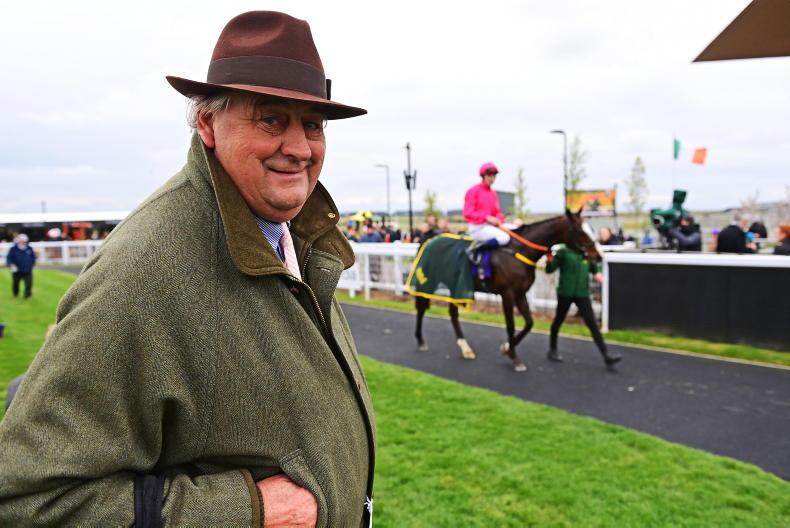

 This is a subscriber-only article
This is a subscriber-only article
 It looks like you're browsing in private mode
It looks like you're browsing in private mode




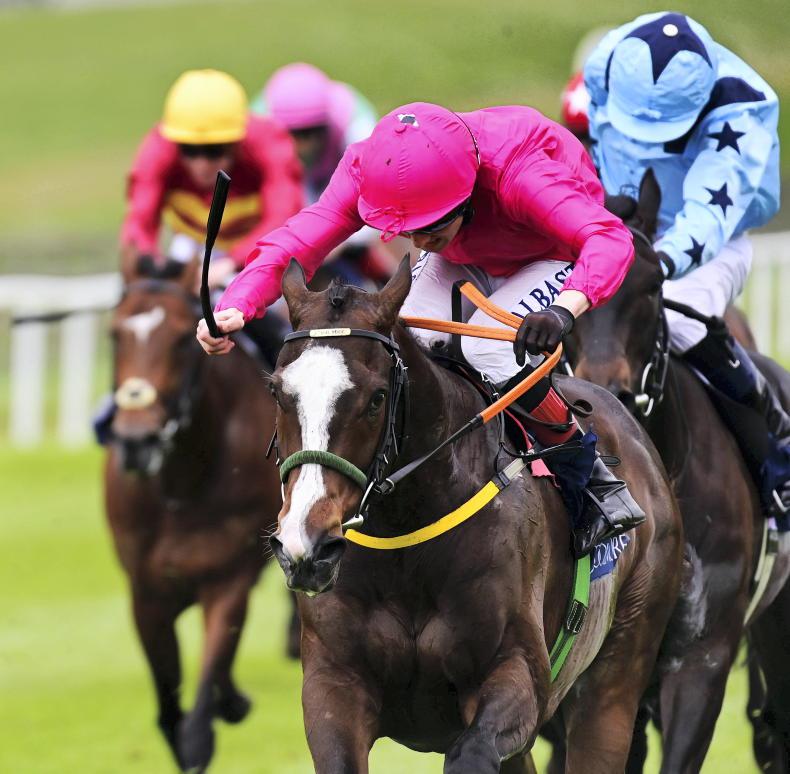
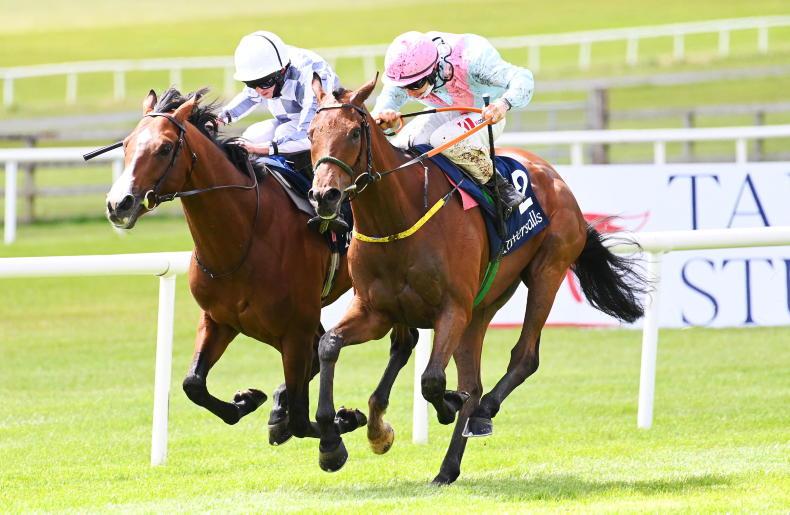
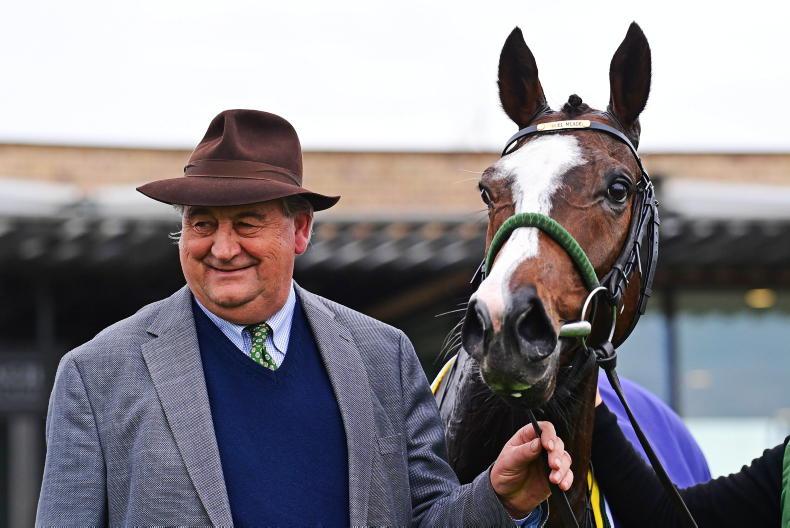
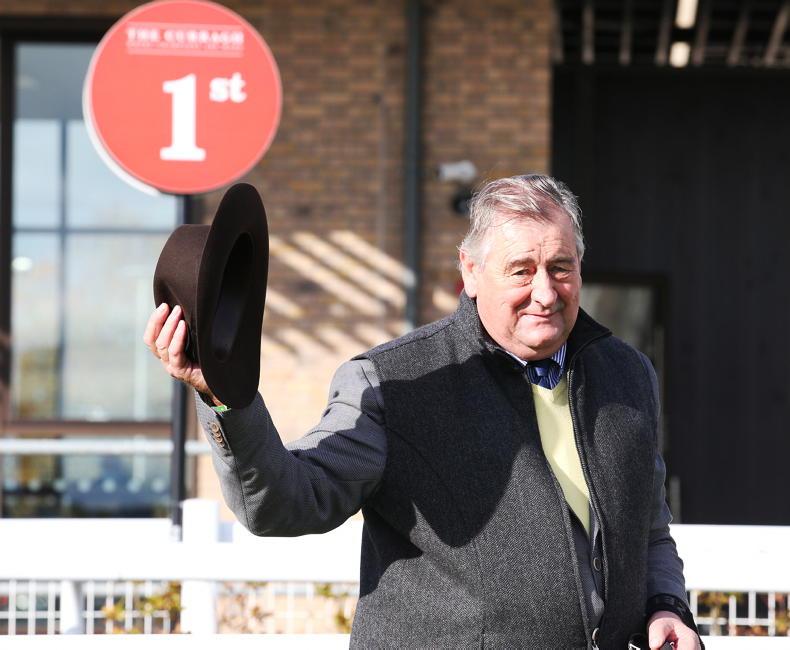






SHARING OPTIONS: